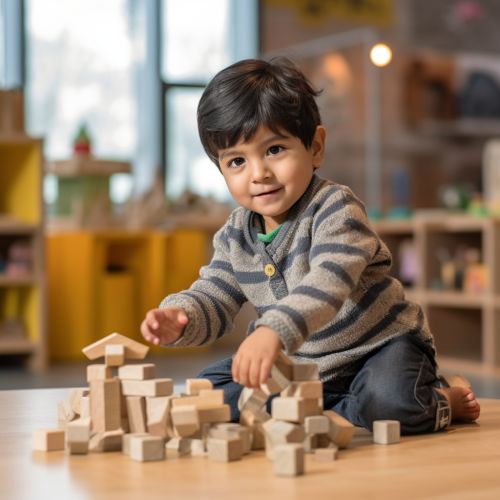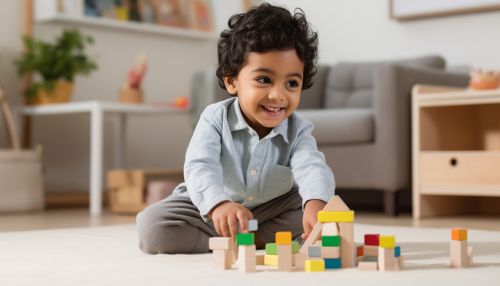Child Development
Introduction
Child development refers to the biological, psychological, and emotional changes that occur in human beings between birth and the conclusion of adolescence. The process involves the development of a person's physical, cognitive, emotional, social, and language abilities. It is a continuous process with a predictable sequence, yet having a unique course for every child. It does not progress at the same rate and each stage is affected by the preceding developmental experiences.
Biological Development
Biological development, also known as physical development, involves the physical growth and development of the child. It includes the development of fine and gross motor skills, coordination, and physical health. Biological development is influenced by genetic factors, nutrition, and physical activity. It is important to note that biological development does not occur in isolation but is interconnected with other areas of development such as cognitive and emotional development Developmental Psychology.


Cognitive Development
Cognitive development refers to the development of thinking, problem solving, and memory schema. This includes the development of intelligence, conscious thought, and problem-solving. Cognitive development is influenced by a child's genetic makeup, environment, and education. It is a critical aspect of child development as it influences a child's ability to interact with their environment and understand the world around them Cognitive Development.
Emotional and Social Development
Emotional development involves the development of a child's emotional intelligence and the expression and management of emotions. Social development involves the development of social skills and understanding societal norms and expectations. Emotional and social development are closely linked and influence a child's ability to form relationships, interact with others, and navigate social situations Emotional Intelligence.
Language Development
Language development is the process by which children come to understand and communicate language during early childhood. It includes the development of skills in listening, understanding, speaking, reading, and writing. Language development is essential for a child's cognitive development and learning. It is influenced by a child's environment and experiences with language Language Development.
Factors Influencing Child Development
Child development is influenced by a variety of factors including genetics, environment, socioeconomic status, education, and experiences. These factors can either facilitate or hinder a child's development. Understanding these factors can help in identifying potential developmental delays and provide early intervention strategies Child Psychology.
Developmental Milestones
Developmental milestones are behaviors or physical skills seen in infants and children as they grow and develop. These milestones are a set of functional skills or age-specific tasks that most children can do at a certain age range. They serve as a guide to track a child's development Developmental Milestones.
Developmental Theories
There are several theories of child development that have been proposed by various psychologists. These theories provide a framework for understanding the complex process of child development. Some of the most influential theories include Piaget's theory of cognitive development, Erikson's psychosocial stages, and Vygotsky's sociocultural theory Developmental Theories.
Conclusion
Child development is a complex process that involves changes in physical, cognitive, emotional, social, and language abilities. It is influenced by a variety of factors and follows a predictable pattern. Understanding child development can help in promoting healthy development and identifying potential developmental issues.
